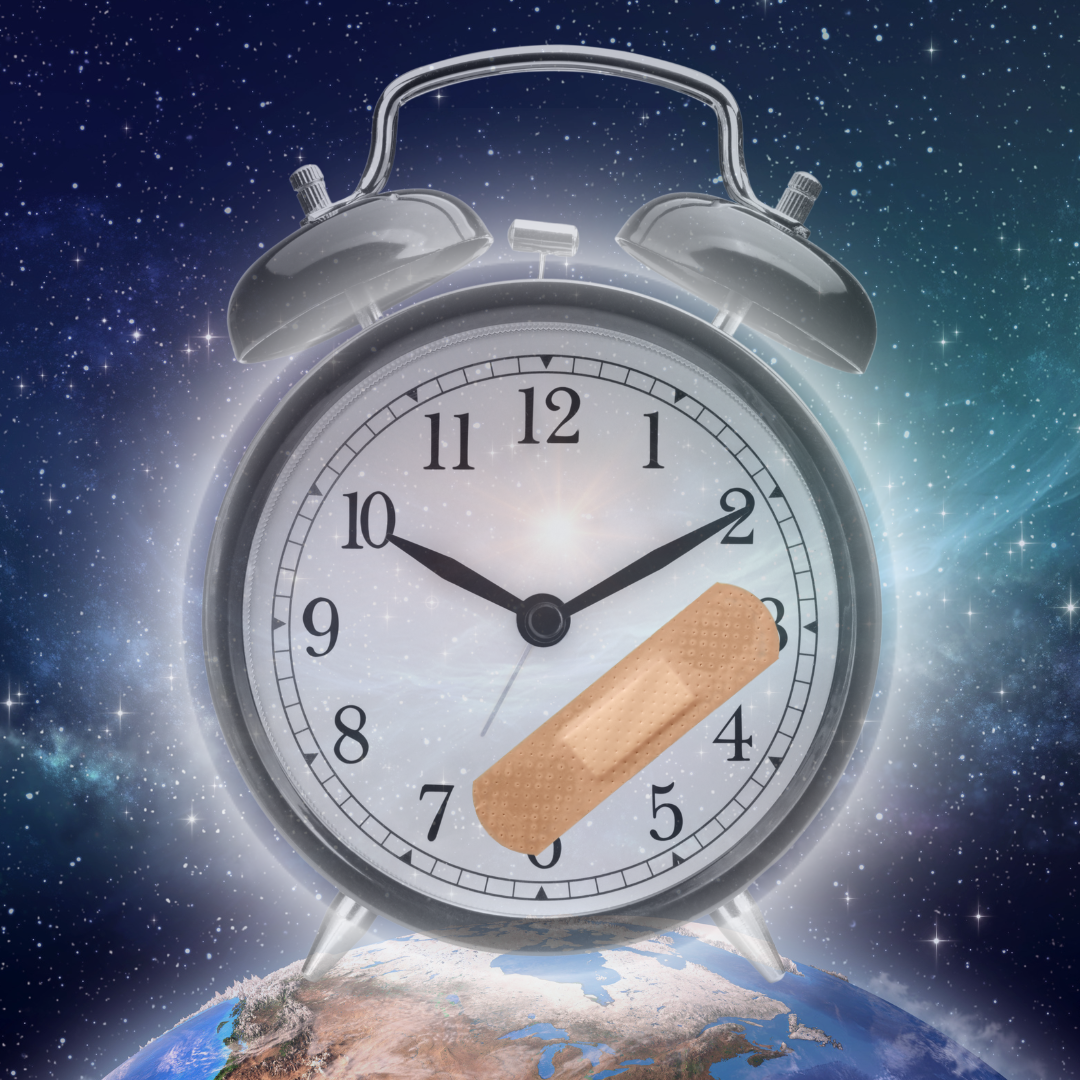What is the Time Wound?
Out of all the possible elements that get in the way of making your dreams or vision a reality, you might not realize that your internalized beliefs about time —or more precisely, about your lack of time— are what hold you back.
At first glance, this doesn’t make sense. Our clocks help us stay accountable to the people and projects we care about. Our schedule allows us to accomplish the important intentions and goals we put into motion.
Time is absolutely an effective container for supporting our creations. Without the systems we’ve created to organize our time, it would be difficult to maintain trust with the people who can help make our visions a reality.
So how is it that our beliefs about time hold us back from attaining our visions?
To answer this question, take a moment to feel what happens in your body when you think these thoughts:
“Ugh. I need to stop procrastinating!”
“I have so much to do and not enough time!”
“If I don’t do that now, it’ll be too late.”
“I’m too busy!”
“I suck at being consistent.”
The tightness or constriction you feel in your body when you ponder these thoughts is exactly what’s holding you back.
These thoughts have been normalized to the point that we think they’re beneficial. There’s an unspoken societal understanding that these thoughts give us the motivation we need to accomplish what we need to accomplish. This is especially true for societies that function on what anthropologist Edward T. Hall defined as monochronic time.
Monochronic cultures (mostly found in Canada, USA, Australia, parts of Europe and parts of Asia) emphasize the importance of schedules, punctuality, and strict timelines. Time is compartmentalized into single tasks, which contributes to the idea that time is a resource (i.e., “time is money”).
I believe that when we hold too tight to the belief that time is a finite commodity, we strip away our desire to create, which is to make our dreams and visions come true. Instead of contributing to growth and expansion, these time-scarcity thoughts contribute to our energetic depletion, which feeds into what I call the Time Wound.
The time wound is a term I use to describe the uncomfortable —and even painful— thoughts, behaviors, and feelings that prevent us from experiencing ease and abundance when it comes to our relationship with time.
We may experience the time wound if we’ve learned to value:
results over process,
progress over ease,
linear timelines over cyclical ones,
outcomes over relationships, and
schedules over intuition.
The core expression of the time wound relates to our belief that time is scarce and that, as a result, we must act in a certain way to control it. We’re convinced that if we don’t behave in a certain way, we’ll lose time, which is another way to say, we’ll fail.
These behaviors are mostly unconscious as they’re generally culturally accepted as normal.
Here are some behavioral indicators that your time wound is flaring up:
You feel excessively challenged by patience and perfection.
You consistently feel overwhelmed and exhausted by your schedule.
The word “should” regularly shows up in your mind and conversations (i.e., I really should or shouldn’t do this.)
You worry about being seen as “unprofessional”, lazy, or worthless if you don’t work hard enough. Read more on the concept of professionalism in the article The Bias of ‘Professionalism’ Standards by Asya Gray.
You often have thoughts like this: “I need to stick to a timeline and be consistent or…
people will think I’m flaky.”
I’ll become irrelevant.”
people will forget about me.”
I’ll fail.”
The consistent thoughts that time is scarce cause stress in our bodies and relationships. They inhibit us from seeing what’s true: that we actually do have time.
How can we heal the time wound?
We all move according to our own natural energetic frequency. Our frequency is determined by our natural inclinations as well as what brings us ease, energy, and safety.
While many factors contribute to our natural energetic frequency, which I explain in depth in the Energy Management for Lightworkers program, the simplest way to think about it is to consider your chronotype:
Are you a morning or night person?
Leaving aside any judgments you may have about the time of day you prefer, you probably can easily answer this question.
At this time of the day, you’re usually more awake, aware, and active. Your chronotype is part of your natural energetic frequency!
Accepting your preference, you can plan your day accordingly. If you're a morning person, make sure you aren’t doing activities that require focus and attention in the evening. If you’re a night person, reverse this energy management suggestion.
Honoring your chronotype is one way to map your energy so that you begin flowing with time, which translates into flowing with your vision rather than against it!
Another way to look at it is, instead of going against your natural energetic frequency, you begin to honor it. And as you begin to honor your natural energetic frequency, your time wound also begins to heal.
Try honoring your chronotype for a month and see what happens to your life and your dreams. After that month, make sure to find me on Instagram, YouTube or here to let me know what you learned about yourself and your energy.
And if you want to learn more about my Energy Management for Lightworkers program, read more by clicking the image below.
It’s a dynamic program which functions on the Energy Mapping and principles of nature I introduce, while helping you integrate those principles as well.
If you have any questions, please contact me here.



